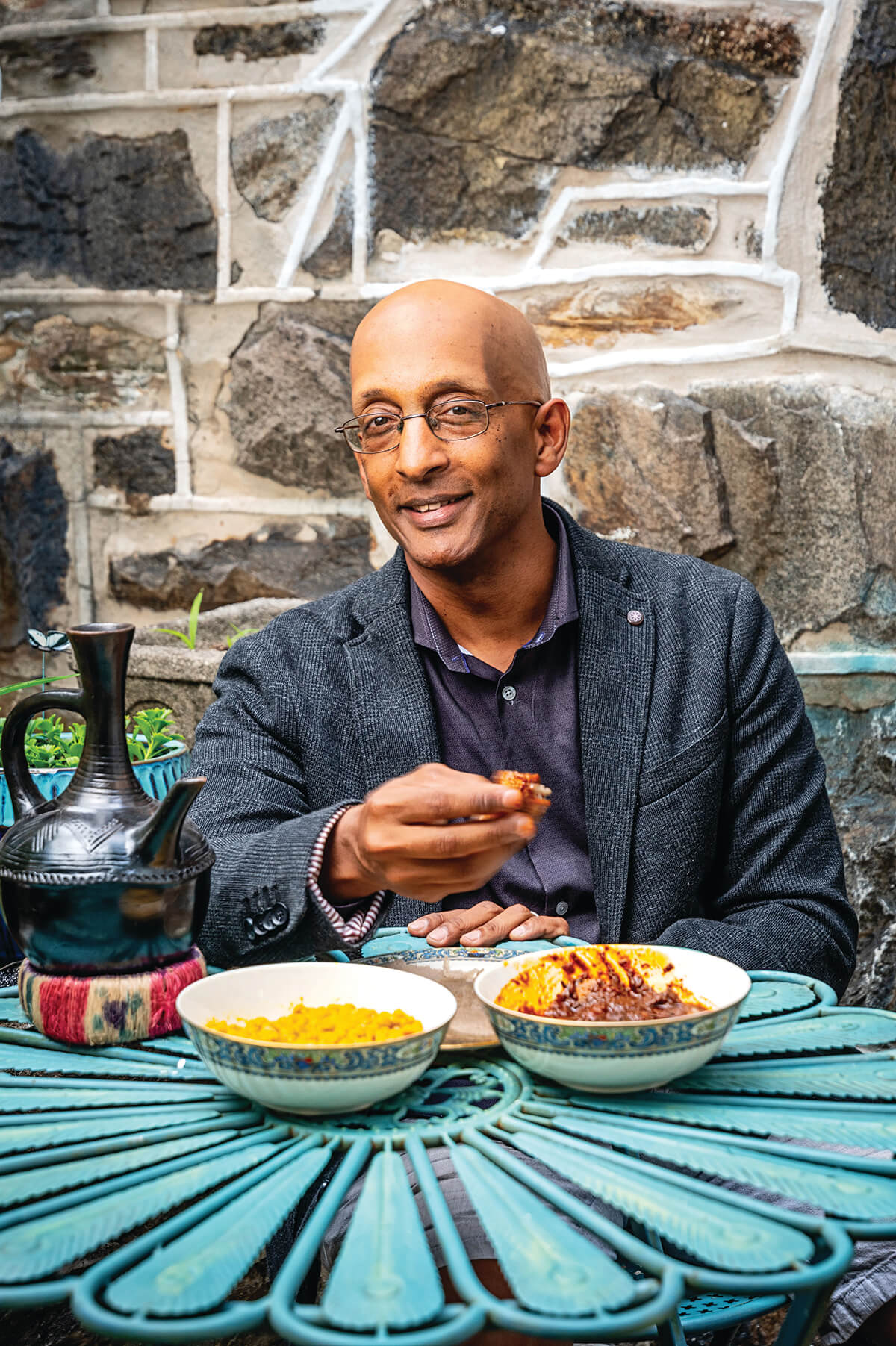Food & Drink
Korarima’s Vegan Ethiopan Fare Shines at 32nd Street Stall in Waverly
Husband-and-wife team Daniel and Helen Wassé feature aromatic dishes from their native Ethiopia at the weekly farmers market—and expansion plans are in the works.

If you head to Waverly’s 32nd Street Farmers Market on Saturday mornings, in addition to the tables filled with local peaches, sweet potatoes, and chard, you’ll find one presenting five silver tureens—gorgeous, elaborate serving vessels seemingly misplaced from a baroque dinner party—under an Ethiopian flag fluttering from a white tent.
This is Korarima, a pop-up restaurant stall from husband-and-wife team Daniel and Helen Wassé, featuring their vegan Ethiopian cuisine.
Early on weekend mornings, the tureens are filled with deeply aromatic dishes, classic fare from the couple’s native Ethiopia: the stewed red lentils called messir; shiro, a thick sauce painted deep orange by the spice mixture berbere; a yellow split pea stew called kik alicha; shimbra asa, which Wassé describes as “a chickpea version of doro wat,” the famed berbere-spiked chicken stew; and, depending on the season, the spiced cabbage called tikil gomen, collards or green beans. Nearby tubs house tightly rolled spools of injera, the traditional spongy flatbread made with fermented teff flour, flown in directly from Ethiopia.
Wassé, whose family came to the U.S. from Addis Ababa when he was a baby, is a pianist and a grade-school teacher at the nonprofit Village Learning Place. He and his wife moved from D.C. to Baltimore six years ago and, when their initial hope of opening a brick-and-mortar restaurant was put on hold with the pandemic, they found the farmers market for Korarima.
They’re now again scouting restaurant locations with Helen’s brother, Ezana Ferede, who is also a chef, and they’ve recently partnered with the Baltimore Symphony Orchestra to bring their food to the Meyerhoff before concerts.
You aren’t yourself vegans, so why do you focus on specifically vegan dishes?
Because there’s a vegan movement here. Ethiopia probably has the biggest if not one of the biggest vegan menus in Africa. If you’re really religiously observant, you’re fasting half the year. So you go where there’s a need, not to mention the dollars and cents. Ethiopian vegan is sufficiently unique, with the spices, and there aren’t too many restaurants here we’re competing with.
Have you always cooked?
We both have. I was born in Ethiopia, where food is a big part of the culture. Growing up here, how do you stay connected to the culture? It’s through food. Something that always sticks in my memory is going to a restaurant where the injera was actually sticky, still “leet,” [meaning] half-cooked. It’s a metaphor for when anything is left undone. My father, Dr. Alula Wassé, is a historian and food’s important, so I started cooking. [Now] it’s my wife who handles the food. I do the prep work and she’s brought me up to speed with the subtlety of the spices—we make our own berbere the traditional way. The chiles are warmed by the sun; the chemistry is different, slower.
Can you tell me about your name?
Our name is Korarima, which is false cardamom. African cardamom is radically different than the cardamom here. The smell of fresh korarima is so pungent, and it’s at the root of Ethiopian food. So if you don’t have fresh korarima, you’re faking it. It’s so fundamental. We live in Baltimore; it’s not too far from Dulles, and there’s a flight every day from Ethiopian Airlines. We know people; they send it. The curator at The Walters had to go to Ethiopia [for the art museum’s recent Ethiopia at the Crossroads exhibition], so we twisted her arm a little to bring some back.